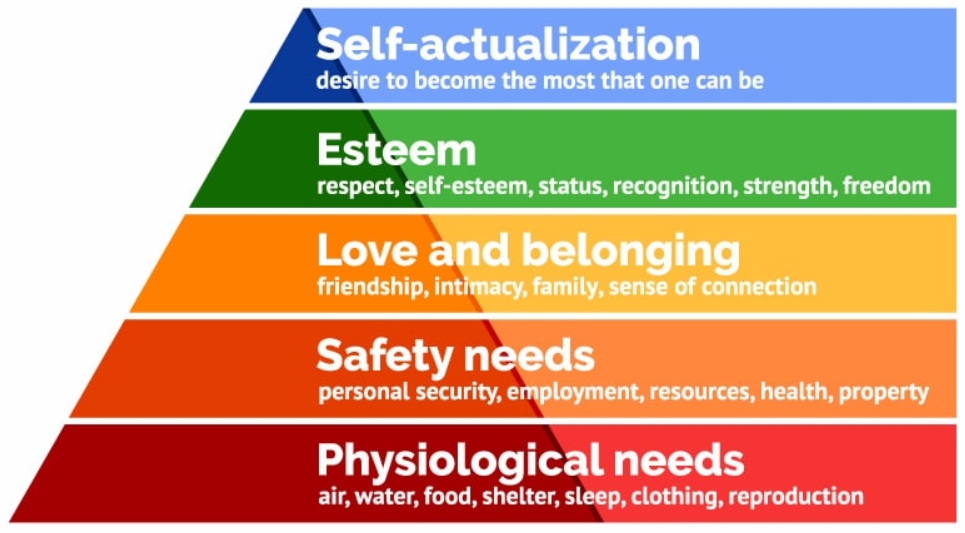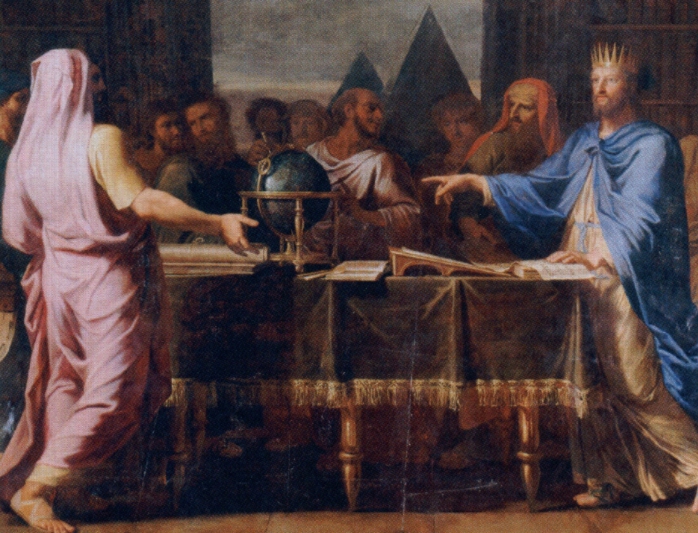Motivation is a very cunning thing. It is influenced by certain factors, which in their turn influence consumers’ behavior and their needs. The aspect of motivation has been thoroughly investigated by a number of scientists. They formulated theories explaining what makes a person act in this or that way. Have you heard of such? Here are the most popular of them.
1. Maslow’s Hierarchy of Needs
An American psychologist Abraham Maslow created the hierarchy of needs, a theory of psychological health predicated on fulfilling innate human needs in priority, culminating in self-actualization. No need to go very deep into this issue now, right? We will focus on the main subject of this theory.
So, what is the main point of the hierarchy of needs offered by the scientist? There is a pyramid, which consists of certain levels of human’s needs:
- Physiology (primitive humans’ desires like thirst, hunger)
- Safety (confidence in the future)
- Conformism (a feeling of being a part of the society)
- Prestige (respect, development, status)
- Spiritual level (self-expression through creativity)

When a person manages to satisfy his basic needs like having a cozy place of living and food, they cease to be his motivators. Instead, they are substituted by more complicated needs. It’s quite obvious because a person who is concerned about the problems of having enough food will hardly bother about art and self-expression.
This theory gives the companies an opportunity to figure out, which of their products meet specific customer needs. A good idea will be to make the customer’s desire a priority. The manufacturer’s desire should be a secondary priority. Not on the contrary.
2. Herzberg’s Motivation Theory
In 1960 Frederick Herzberg and his colleagues carried out a study on the subject of human needs. The background of this study is about two factors of motivation. Certain conditions bring out negative emotions, others – only positive. A famous psychologist claimed that both satisfaction and dissatisfaction can be advantageous. The factors which influence these two emotions are connected with particular needs. And these needs influence the formation of the motives.

Can you imagine such a paradox: even demotivation doesn’t influence the satisfaction of needs. A bright example for you. Remember the demotivating pictures on the packs of cigarettes. Did they influence the decrease of smoking people? People don’t even pay attention to that. But sales have grown steadily. Ok, let’s get down to the last one.
3. McClelland’s Human Motivation Theory
And finally here goes the Theory of Needs developed by an American psychologist David McClelland. There are several types of needs influencing the consumer’s behavior:

a) The Need for achievement or the need to be effective
It explains the difference between high achievers and everybody else. High achievers are searching for challenges that are right at the edge of their abilities. They are obsessed with the tasks they solve.
This need is common not only for definite people but for various communities as well. The communities with a high need for achievement have a more developed economy.
b) The Need for affiliation
This need consists of a desire to be in good relationships with the surrounding people. It’s a craving to get support and to be at the center of attention. Public opinion for such people is of high importance. This influences the consumer’s behavior much.
That’s why people take part in different charity activities and donate much to help animals, for example. Sometimes such actions are not connected with the craving to take care of something or to be useful. It’s explained by the need to show the majority that you are being part of the community and you are not an outsider.
c) The need for power
This need appears as a result of learning and gaining experience. It’s about a human’s need to control everything around. It is about controlling the actions of people, influencing their behavior and taking different responsibilities.
The core of each successful strategy is understanding the psychology of the customer: his motivations, deepest desires, and goals. This knowledge helps to develop appropriate marketing materials, promo campaigns and effective marketing tools.
Nicely put together. Great the community has people like you.
Remarkable and actually good material!
Thanks! We’ll keep it rolling!